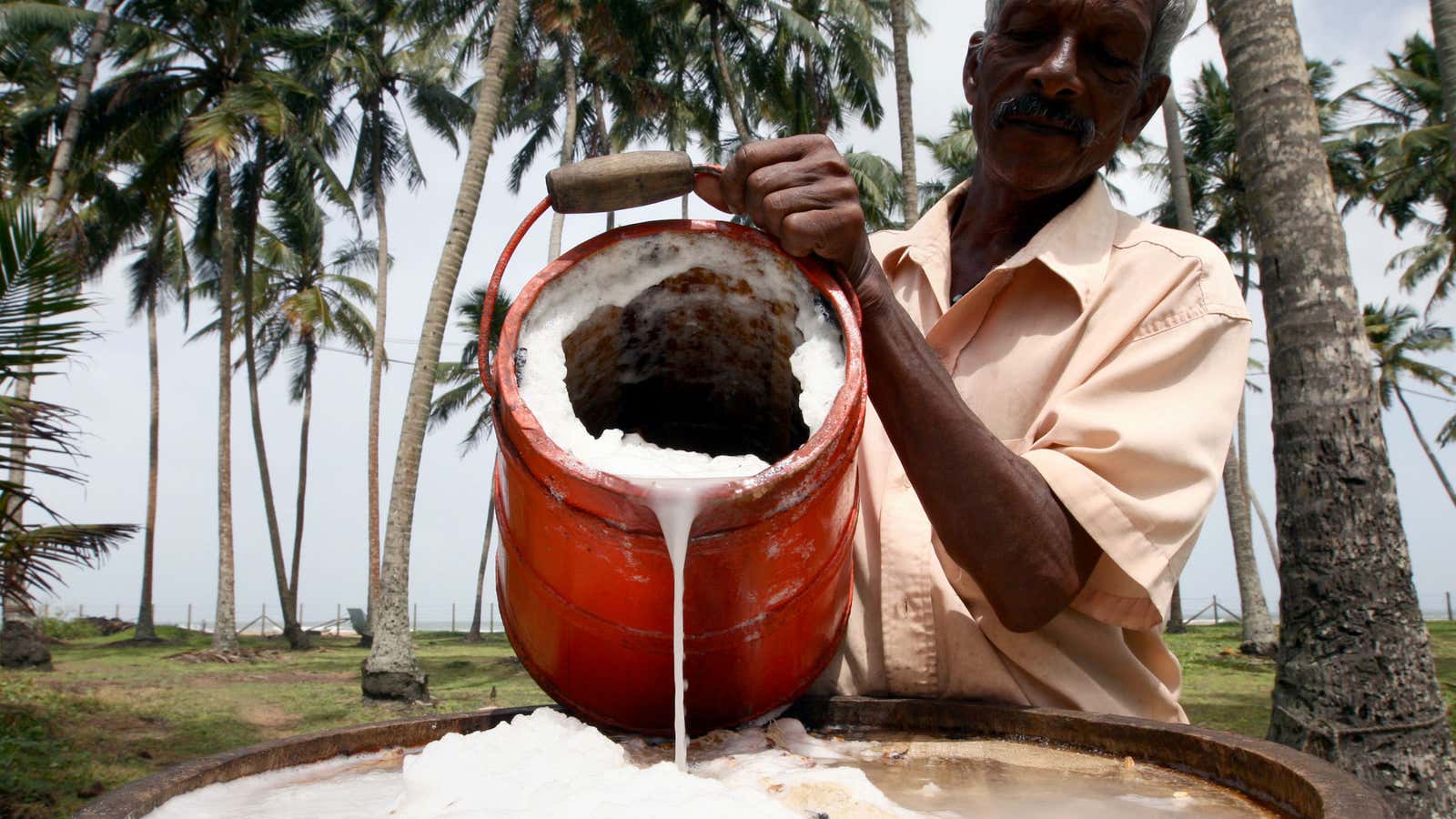The world’s supply of coconut water—along with the myriad foods, oils, cosmetics, fibers and fuels made from coconuts—could be under threat. The United Nation’s Food & Agriculture Organization (FAO) warned on Nov. 1 that global demand for coconut products is outpacing the rate of production in Asia, where about 85% of the world’s coconuts are grown.
As world-wide consumption of all things coconut has jumped over the last decade, Asian countries have seen their exports of the commodity explode. At one point last year, exports from the Philippines, the world’s second biggest coconut producer, had grown over 400% from the year before. Between 2009 and 2012, exports of coconut oil from Asia have grown about 3% a year, according to the Asian Pacific Coconut Community, an Indonesia-based organization that represents coconut growers. Now, coconut water and milk, used in drinks and health products, make up 30% of global coconut consumption, according to the UN.
That growth could hit a wall if Asian countries don’t figure out a way to boost productivity. FAO representatives said that consumption for coconut products is growing more than 10% a year, but production in Asia is increasing by only around 2%. The problem? Most coconut trees in Asia—where many of them were planted just after World War II—are over the age of 50 and losing their productivity, the FAO said. (Coconut palms are the most productive between the ages of 10 and 30.) Today, the average harvest in Asia is about 40 coconuts per tree annually, whereas younger trees can potentially yield between 75 and 150 coconuts, according to the agency.
Falling coconut productivity matters not only for health nuts worried about their electrolytes. Millions of small farmers across South and Southeast Asia depend on the fruit. In the Philippines, the commodity contributes as much as 5% to the country’s GDP and is its largest agricultural export. In India, the coconut industry contributes an estimated 83 billion rupees ($1.3 billion) a year to the economy, according to K. Muralidharan, director of the Coconut Development Board.




